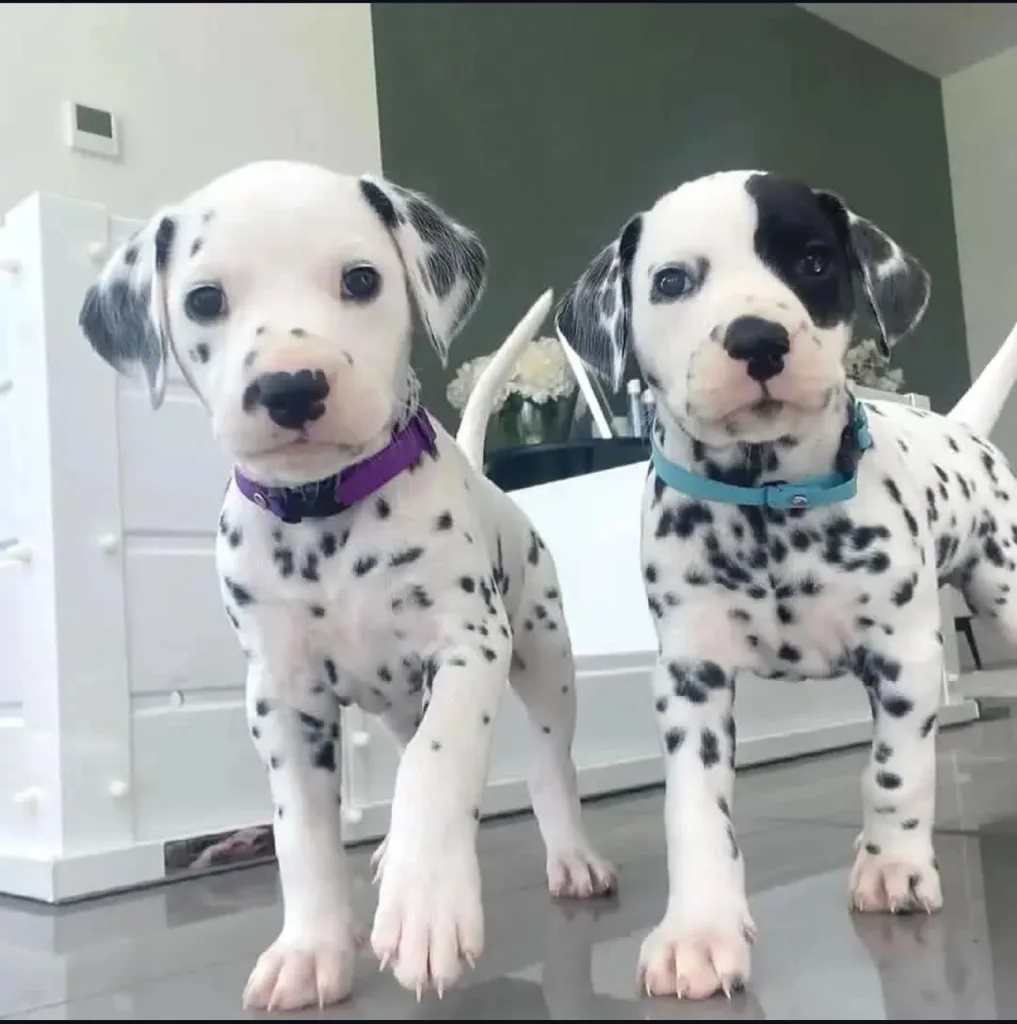Dalmatians are one of the most iconic and beloved dog breeds, known for their unique spotted coats and energetic personalities. However, potential owners should be aware of key health concerns that affect Dalmatians and the importance of ethical breeding. With recent discussions surrounding breed standards, medical procedures, and fairness in dog competitions, it’s crucial to understand the responsibilities that come with owning a Dalmatian puppy.
1. Common Health Issues in Dalmatian Puppies
While Dalmatians are generally healthy, they are prone to some genetic conditions that require careful management.
a) Deafness in Dalmatians
One of the most well-known health concerns in the breed is deafness. About 30% of Dalmatians are born deaf in one or both ears due to a genetic link to their coat pattern. Ethical breeders conduct BAER (Brainstem Auditory Evoked Response) testing to determine hearing ability and ensure puppies are placed in suitable homes.
Signs of deafness in puppies:
Lack of response to sounds
Difficulty following commands
Excessive barking or unusual vocalization
How to Manage It:
Train using hand signals
Provide a structured environment
Work with professional trainers specializing in deaf dogs
b) Urinary Stones & Dietary Needs
Dalmatians have a unique urinary system that makes them prone to urinary stones (urolithiasis). Their bodies process proteins differently, leading to an accumulation of uric acid, which can form painful stones.
Prevention Tips:
Provide plenty of fresh water to flush the urinary system
Feed a low-purine diet (avoid red meats, organ meats, and certain seafood)
Regular vet checkups to monitor urinary health
A diet rich in vegetables, chicken, and eggs is recommended to reduce the risk of stone formation.
c) High Energy Levels & Exercise Needs
Dalmatians were bred as carriage dogs, meaning they have high endurance and require a lot of exercise. Without proper outlets for their energy, they can develop destructive behaviors.
How Much Exercise Do They Need?
At least 1-2 hours per day of walks, playtime, or agility training.
♂️ Best Activities for Dalmatians:
Running & jogging
Agility training
Swimming
Fetch & interactive games
An under-exercised Dalmatian may become hyperactive or develop behavioral issues like excessive barking and chewing.
2. Ethical Breeding: Why It Matters
The recent Crufts controversy involving a Dalmatian-Vizsla cross being banned due to a medical tail amputation has sparked debates about ethical breeding and breed standards.
Ethical breeding ensures that:
Puppies are bred for health and temperament, not just appearance
Genetic testing is conducted to prevent passing on hereditary diseases
Puppies are socialized before being placed in homes
How to Find an Ethical Dalmatian Breeder:
Ensure they conduct health screenings (BAER test, genetic tests, etc.)
Check for a clean, well-maintained environment
Avoid breeders who prioritize looks over health
Ask about the puppy’s early socialization and training
At Spotted Dalmatian Pups, we follow strict ethical breeding practices, ensuring our puppies are matched with families based on lifestyle and expectations.
3. The Debate on Breed Standards & Medical Exceptions
Recent events, like the Crufts Dalmatian ban, highlight a growing conversation in the dog world:
Should medical procedures (like tail amputations) disqualify dogs from competitions?
Should breed standards evolve to prioritize health over aesthetics?
Many dog lovers argue that health should always come first, while others believe breed standards must be maintained.
As ethical breeders, we believe:
Medical procedures done for health reasons should be considered on a case-by-case basis
Breed standards should evolve to prevent genetic disorders and unnecessary suffering
Potential owners should be educated on the realities of each breed before making a commitment
4. Final Thoughts: Owning a Dalmatian Responsibly
Dalmatians are loyal, energetic, and intelligent companions, but they require dedicated owners who understand their unique needs.
Before bringing a Dalmatian puppy home, consider the following:
Can you provide adequate exercise daily?
Are you prepared for potential health concerns (deafness, urinary stones)?
Will you commit to ethical breeding and responsible ownership?
By supporting ethical breeders and staying informed about breed-specific issues, we can ensure a happier, healthier future for Dalmatian puppies.
Looking for a well-bred Dalmatian puppy? Visit Spotted Dalmatian Pups to learn more about our responsible breeding program.

